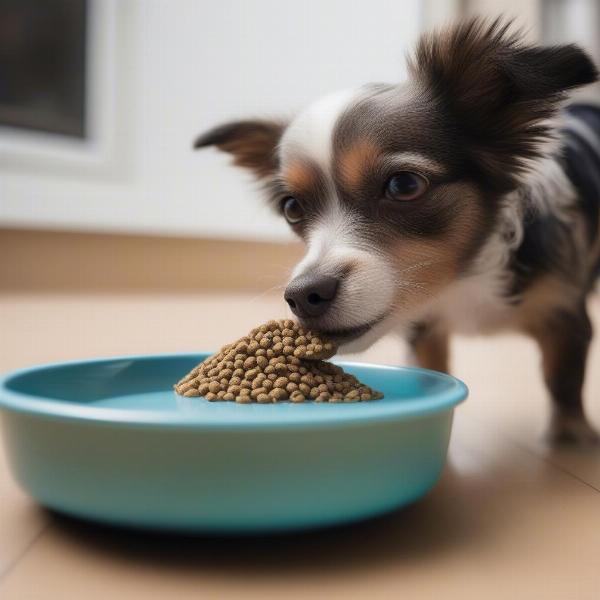Palm Pals Dog isn’t a specific breed, but the term evokes a sense of close companionship with a small dog that fits comfortably in your hand. This guide explores the concept of a “palm pals dog,” focusing on small breeds suitable for this affectionate description, and provides comprehensive information on choosing and caring for these adorable companions. From understanding their unique needs to ensuring their health and happiness, we’ll cover everything you need to know to welcome a palm-sized pup into your life.
Choosing a small dog breed often hinges on lifestyle and personal preferences. Breeds often associated with the “palm pals” image include Chihuahuas, Yorkshire Terriers, Pomeranians, and Toy Poodles. Each breed boasts distinct characteristics, temperaments, and grooming requirements. Researching these differences is crucial in selecting a dog that complements your lifestyle and living situation. Consider factors like activity levels, apartment living, and allergies before making your decision. Bringing a dog into your home is a significant commitment, so choosing wisely is essential for both your and your future furry friend’s well-being.
Understanding Your Palm Pals Dog
Small dogs, while adorable and portable, have unique needs that differ from larger breeds. Their small size makes them more susceptible to certain health issues, and their delicate frames require careful handling. Understanding these specific needs is crucial for responsible pet ownership.
Health and Care for Small Breeds
Small breeds are prone to specific health concerns like hypoglycemia, dental problems, and tracheal collapse. Regular veterinary check-ups are essential for early detection and treatment of these potential issues. Maintaining a healthy weight through a balanced diet and regular exercise also plays a vital role in preventing health problems.
Training and Socialization
Despite their size, small dogs require training and socialization just like larger breeds. Early socialization helps them develop into well-adjusted adults, comfortable around other dogs and people. Consistent training establishes clear boundaries and prevents behavioral issues like excessive barking or separation anxiety.
Nutrition for Small Dogs
Small breeds have high metabolisms and require nutrient-dense food formulated specifically for their size. Feeding them small, frequent meals throughout the day helps maintain stable blood sugar levels and prevents hypoglycemia.
 Small Dog Eating
Small Dog Eating
Choosing the Right Palm Pals Dog
Finding the perfect small breed requires careful consideration of several factors.
Matching Your Lifestyle
Consider your living situation, activity level, and personal preferences when choosing a small breed. Some breeds are more energetic than others, while some thrive in apartment living.
Researching Breeds
Thorough research is essential. Explore different breeds, their characteristics, and their specific needs to find the best match for your lifestyle.
Meeting the Breeder or Rescue
Whether you choose a breeder or rescue, meeting the dog beforehand is vital. This allows you to assess their temperament and ensure compatibility.
Living with Your Palm Pals Dog
Bringing a small dog home is a joyous occasion, but preparation is key.
Creating a Safe Environment
Puppy-proof your home by removing potential hazards and providing a safe, comfortable space for your new companion.
Essential Supplies
Invest in essential supplies like a comfortable bed, appropriate toys, food and water bowls, a collar and leash, and grooming tools.
Conclusion
A “palm pals dog” offers unparalleled companionship and affection. By understanding their specific needs and choosing the right breed for your lifestyle, you can ensure a long and happy life together. Responsible ownership involves providing proper care, nutrition, training, and socialization, fostering a strong bond with your miniature companion.
FAQ
- What are the most popular “palm pals dog” breeds? Popular choices include Chihuahuas, Yorkshire Terriers, Pomeranians, and Toy Poodles.
- Are small dogs more prone to health issues? Yes, they can be susceptible to conditions like hypoglycemia and tracheal collapse.
- Do small dogs need training? Absolutely, training and socialization are essential for all dogs, regardless of size.
- What type of food should I feed my small dog? Choose a high-quality, nutrient-dense food formulated for small breeds.
- How can I create a safe environment for my small dog? Puppy-proof your home by removing hazards and providing a comfortable space.
ILM Dog is a leading international pet website dedicated to providing expert advice and resources on dog care and wellbeing. We offer comprehensive information on breed selection, health, training, nutrition, and much more. Our mission is to empower dog owners worldwide with the knowledge and tools they need to provide the best possible care for their canine companions. Whether you’re a first-time dog owner or a seasoned expert, ILM Dog is your trusted source for all things dog-related. Contact us at [email protected] or +44 20-3965-8624 for personalized guidance.